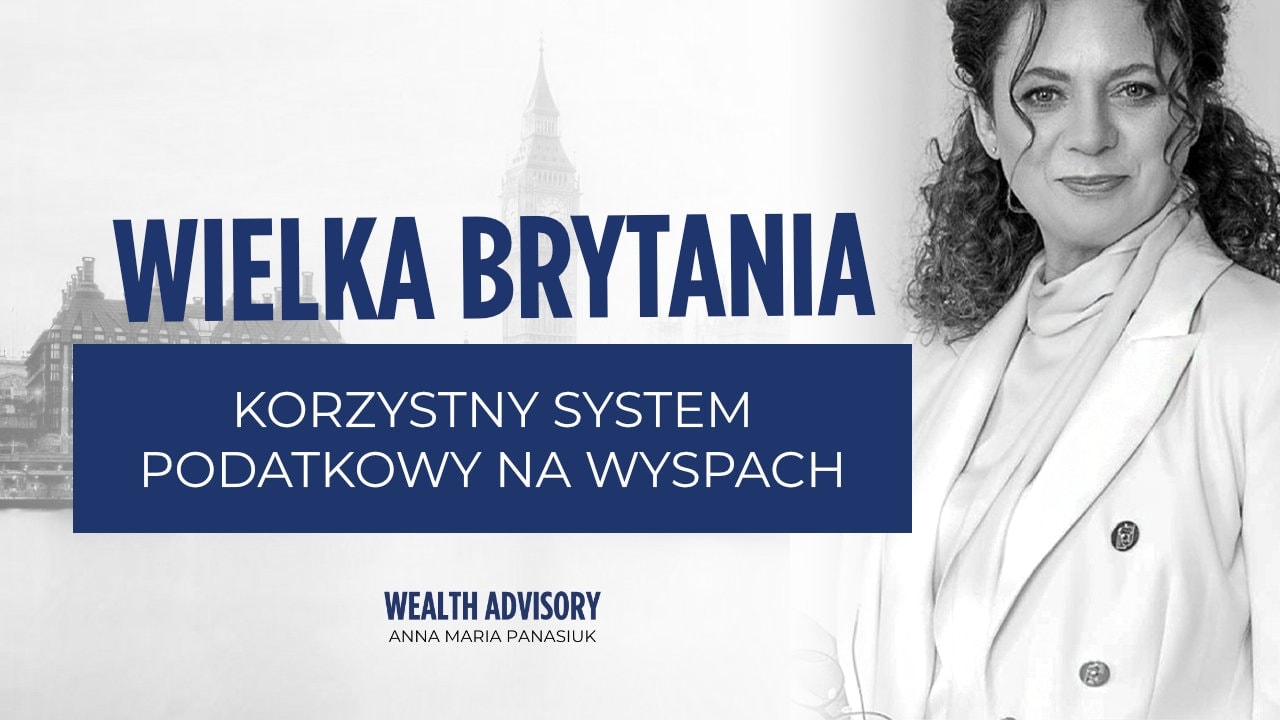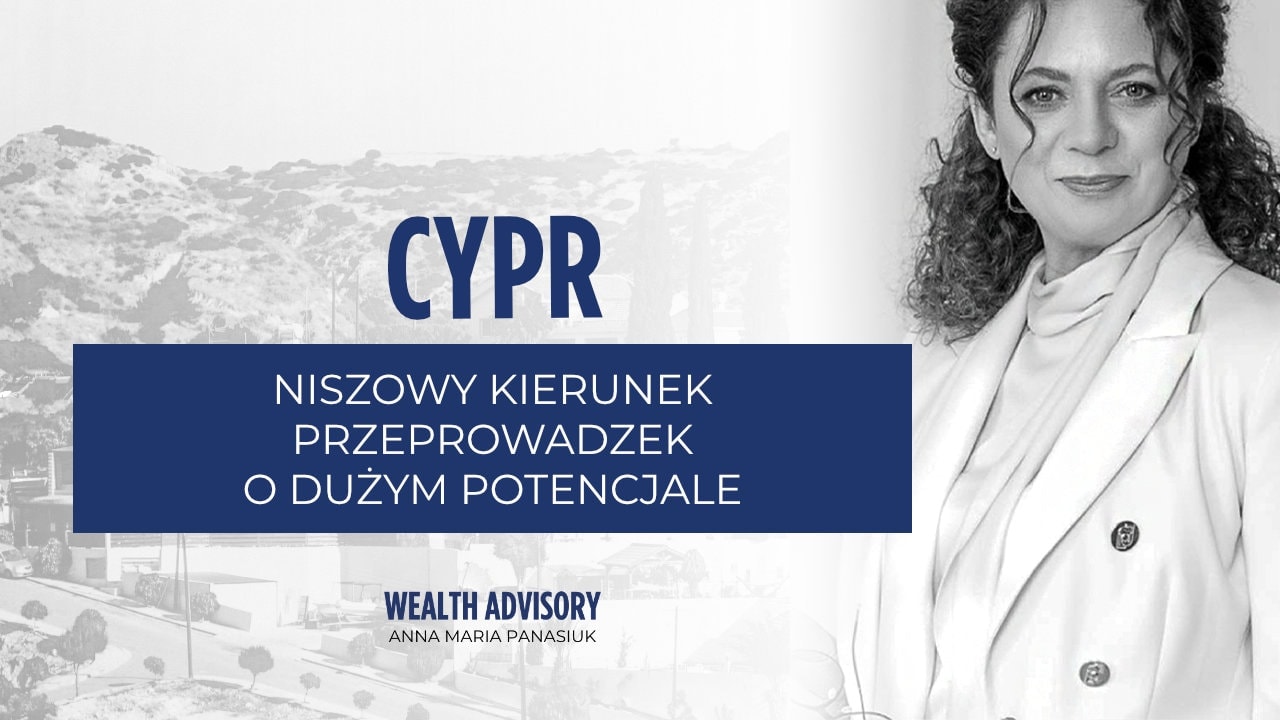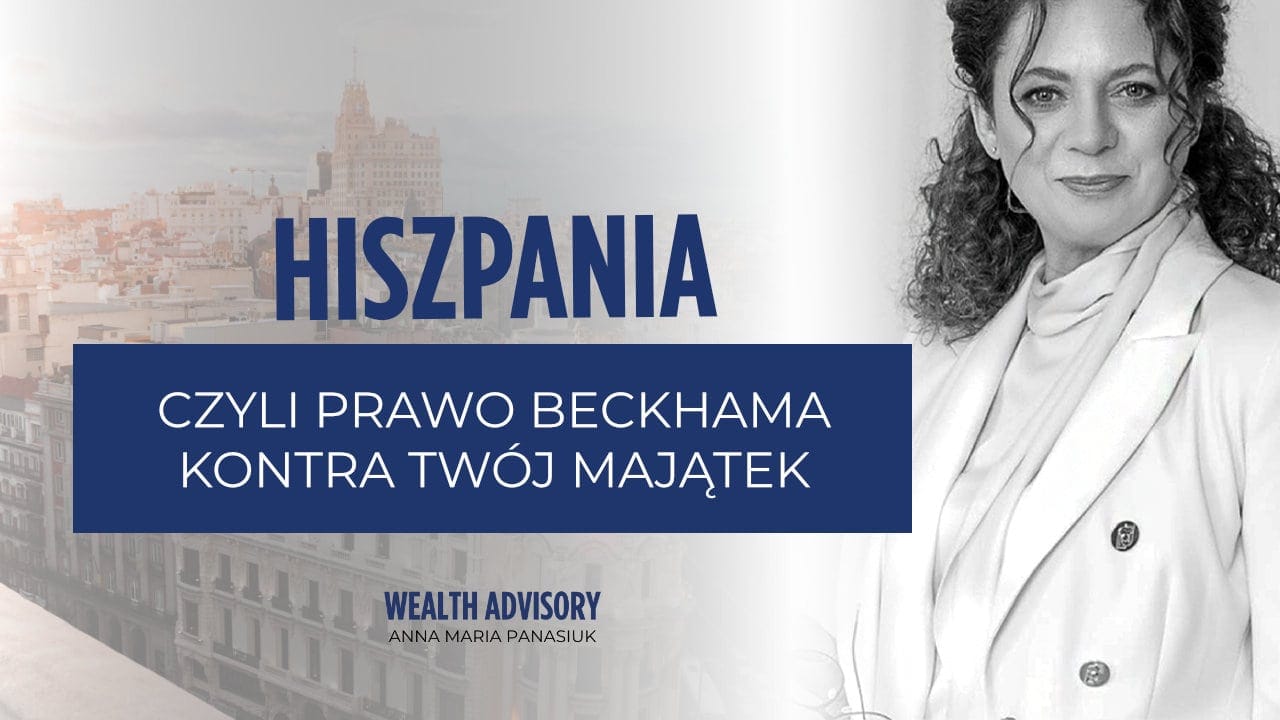The subject of changing tax residence and cross-border income taxation is very close to our heart. There are still many myths circulating on this subject. The statistical Mr Smith knows that two things are certain in life: death and taxes. However, few people realize how income is taxed when it is earned in a country different from the one, we live in or how it is taxed when we move house. It is for that reason that we so stubbornly return to you with this information. Our goal is to educate Polish entrepreneurs. This is the idea underlying the development of the article about the effects of double tax residence, podcast episodes and one of the most frequently saved posts on our Instagram, the one about mistakes during the change of residence. We hope that the nearly half a thousand people who wrote down this post or watched the video will avoid tax problems related to the tax residence, such as those that befell the person, I want to tell you about today.
POINT “ZERO” OF QUICK CHANGE OF TAX RESIDENCE FOR THE SALE OF CRYPTOCURRENCIES “TAX FREE” – HOW DID IT START?
John Smith is a highly enterprising and resourceful man. He operates a business in Poland. He runs a construction company in Poland, which is taxed on very favourable terms. He chose an easy-to-apply lump-sum tax on registered revenue, which beats taxes in other countries by a long shot – it is simply the best deal! Our entrepreneur invests all the financial surpluses. First in stocks and shares, then in cryptocurrencies. He raised quite an amount. Finally, he decided to cash in cryptocurrencies with a view to investing in a house for an expanding family.
And that because he does not relish paying 19% tax (even up to 23%) in Poland. On top of all that it is the revenue that will be taxed, because he has so many crypto wallets and transactions, that he has already lost count. And so far, he has not thought about settling the crypto costs, as the settlement is done when leaving for FIAT. As he hangs around the crypto world, he found out on some forum about interesting investment methods, and he decided to take advantage of the tax saving advice contained there: Cryptocurrencies are not taxed in Portugal, you just need to register there as a resident. With the NHR status, there will be no tax on Polish income. In addition to such information, there is also a contact with an advisor who arranges matters for the acquisition of a Portuguese residence. They will help in document preparation, if it is necessary, they will provide an address of a room for rent and they will draft an annual statement.
Without verifying the subject in advance, Mr. Smith makes an appointment for a consultation, where he learns what and in which office he has to sort out, and a week later he goes to Portugal for two days to deal with formalities such as signing a lease agreement, setting up a bank account or purchasing a pre-paid phone. The rest will be handled by the “advisor”. After the end of the year, he sends financial documents to the “advisor” so that they could prepare an income statement in Portugal. Everything looks very fine, but soon it turns out that the income from cryptocurrencies amounted to EUR 100,000 and he has to pay a total of EUR 150,000 tax in Portugal (in addition to taxes already paid in Poland). But why? Cryptocurrencies were supposed to be tax-free, and so was the Polish income. What happened?
MISTAKE 1. RELIABLE SOURCES OF INFORMATION. WHAT IS THE SITUATION LIKE WITH CRYPTOCURRENCIES IN PORTUGAL?!
The Internet contains a wealth of knowledge. We are aware of it, and we also use it ourselves. However, you know perfectly well at what pace information spreads in it, how it can sometimes be simplified and then circulated online in the form of myths, so you should be careful. When you enter the crypto market, for sure you verify the truthfulness of the information and rely only on reliable verified sources. You reach for the services of experts.
There are many myths with regard to tax issues. One of them, repeatedly perpetuated in a number of sites, is the non-taxation of cryptocurrencies in Portugal. It cannot be said to be a total lie, because it holds a grain of truth in it. However, this is a significant simplification, which, in the sphere of taxation, can bring about disastrous consequences.
The cryptocurrency market in Portugal is not regulated at the moment. This does not mean that it will not be, because everything indicates that it will happen eventually. Due to the fact that this is an unregulated area, it is not known what status should be assigned to crypto-related transactions: whether it is trading in property rights, securities or classify them in some other way. What follows from it is that cryptocurrency operations are tax-free in the case of natural persons. But it is only one side of the coin. Although the disposal of a private asset component after a certain period of time after purchase is exempt from income tax in many countries, regular trading or crypto mining is very often treated as an economic activity, and profits from these operations are taxed as income from this business. The lack of tax on income from cryptocurrencies in Portugal is largely due to the fact that such income is not declared by you there!
Thus, what Mr. Smith’s mistake consisted in was precisely the fact that in his decision he was guided by this not entirely true information and did not verify it in advance with an attorney, legal counsel or tax advisor.
One more thing! Many of you believe that the crypto zone defends itself on its own. The lack of possibility to verify turnovers, allows you to sleep peacefully. “After all, no one will ever know that I have cryptocurrencies.” I will answer like this: “For the time being!”. The fact that no one is going to get hard data on it is both good and bad news. Because when all things are measured, you yourself will not know where you have ETH from and what you bought them for. For Bitcoins? For BNBs? Or was it the other way around?! Who remembers…?! And you have just changed the platform, so you do not have the old data anymore. Oops! And what if you need to prove how you got the funds to buy a house in Spain? So, you say, “I sold cryptocurrencies”. Okay, but how and for what did you buy them? If you do not declare the value of the invested capital, you cannot deduct the cost (for tax purposes). Do you know what this means? The tax is then due on the revenue, that is, on the value of the cryptocurrency sales – even if you have suffered a loss, you must pay the tax on the entire sales!
You, of all people, are aware of how quickly technology undergoes change. Take note how the crypto market has changed and how it is developing. Wallet management apps are already being developed – take advantage of them, as it is a matter of time before the tax authorities in the EU will use them.
MISTAKE 2. CHANGES IN TAX RESIDENCE – FOCUS ONLY ON THE BENEFITS OF A NEW TAX DESTINATION
It is not a good idea to focus solely on whatever favourable stuff a given destination offers, whether in terms of taxes or life in general. Yes, benefits are important, but as with any analysis, also in this case you have to look at the other side of the table, where setbacks might appear. However, it is best to view it globally, because, for example, tax residence in Portugal does not only mean non-taxation of the sales of cryptocurrencies, but also taxation of other incomes with a tax scale of up to 53%.
This is not tax exemption from foreign income with NHR status, but exemption of specific incomes and not necessarily the income from economic activity in this particular industry. Additionally, when thinking about exemption of dividends received from Poland from taxation in Portugal, it is easy to fall into a trap.
First of all, in terms of exit tax, because if we have shares of successful companies, does the market value of these shares not exceed PLN 4 million?
Secondly, dividends will be exempt from taxation in Portugal under the NHR statute but will be subject to withholding tax in Poland. While it is true that having a certificate of tax residence in Portugal, it will be 15% and not 19%, were such savings the real goal?
This mistake also befell our Mr Smith. He focused so much on the issue of the exemption from cryptocurrency taxation that he did not consider how other sources of income would be taxed in Portugal at all. Unfortunately, they are taxed unfavourably. The construction business is not, unfortunately, a high added value activity eligible for the exemption. In Portugal, it is subject to taxation with a 20% income tax rate (when possessing the NHR statute, because without it, it is even more), which is almost twice as high as the Polish lump sum tax. In addition, due to the fact that Mr Smith uses lump-sum taxation on registered revenues, he does not settle costs, so the tax base also in Portugal will be a revenue, not an income!
Our entrepreneur did not know about the existence of the exit tax and about the fact that when moving out of Poland he should assess the market value of his shares and stocks. Fortunately, this tax was not applicable in his case, but what if? The payment of 19% tax on income that has not been earned and may never be received, may hurt a lot.
MISTAKE 3. CHANGES IN TAX RESIDENCE – LACK OF UNDERSTANDING FOR THE PRINCIPLES OF LIFE INTERESTS CENTER AND GLOBAL INCOME TAXATION
If someone has been living and working in Poland for years, they may not be aware of the existence of a thing like tax residence. Some people, for example, going abroad to take up seasonal work do not realize that the fact of their having been taxed in Germany or the Netherlands does not exempt them from including this income in the Polish annual tax return. And that is how tax residence works.
The location where we are tax residents determines that in this country, we declare all our income, both one earned in this country and abroad. In turn, double according to strictly defined rules resulting from agreements on the avoidance of double taxation.
On the other hand, the fact that we work in a given country does not determine the place of tax residence. Neither is it determined by formalities, such as notification of departure, obtaining a tax identification number or registration as a resident. Even the fact that you have rented an apartment in Portugal or that you have bought a house in Spain will not be decisive here. The conditions for acquiring the tax residence of a given country depend on its internal regulations, with the length of stay or the centre of life interests having crucial importance. The formalities should only serve as a confirmation in which country our life is concentrated, where we live, use public goods, engage in professionally activity, as well as earn and spend money. Notifying the tax office of changing the place of residence or checking out of Poland will not determine that we have lost our Polish tax residence. All sorts of information on how to “buy” a tax residence in Portugal, Cyprus or the Dominican Republic should be treated as fairy tale stuff. The Polish tax authorities will not give up budget revenues easily and even if the factual circumstances justify your greater presence in Poland, even a foreign certificate of tax residence will be of little use.
The Mr Smith in our example, deciding to transfer his tax residence to Portugal, did not know about all these elements. He was convinced that since he declares income from operations in Poland, he does not have to break it down in Portugal, and if the funds from the sale of cryptocurrencies are to be transferred to a Portuguese account, it would be tantamount to say that they would not be taxed in Poland. Another issue is that our Mr Smith was convinced that checking out of Poland, renting a flat in Portugal, registering it as a place of residence and registering as a taxpayer, would suffice to obtain tax residence in Portugal and it would be irrelevant that he had been in Porto for 3 days and his wife and children live in Poland, where he runs a business, has a house and spends most days of the year.
MISTAKE 4. OBTAINING TAX RESIDENCE OF ONE COUNTRY WITHOUT RELINQUISHING THE PREVIOUS RESIDENCE
Could you be a tax resident in several countries? Is it possible to hold double tax residence? the answer to these questions is YES. As we have already mentioned, each country itself sets its own rules according to which it considers a person to be its tax resident. For natural persons, there are usually two criteria: the centre of life interests or the length of stay. It is usually sufficient to meet one of them to be considered a tax resident of a given country. Thus, you can be a tax resident in one country on the basis of the centre of life interests criterion and in another on the basis of the length of stay. It may also happen that in one country we have a centre of personal interests (because we moved there with our family), and the centre of economic interests has remained in another country – because the business has remained there. Or put another way, you go abroad to work and your wife and children stay in Poland. When leaving and obtaining a new tax residence, it is worth taking care to get rid of the previous one. Especially since you can learn about the fact that there was no effective loss of tax residence with a long delay, when this situation cannot be largely remedied, and tax arrears have grown to significant figures.
Our Mr. Smith was convinced that by reporting his departure from Poland and registering in Portugal, he obtained tax residence there, and that this is tantamount to the fact that in Poland he will settle only the income from Polish business activity. In this particular case, not losing Polish tax residence turned out to be paradoxically beneficial. On account of this fact, it was possible to undertake efforts in Portugal to prove that he had never been a tax resident in Portugal. However, if a little more time had passed and Mr Smith had bought a house in Poland with the funds from cryptocurrencies exchange, there could have been questions about the origin of these funds due to the lack of their settlement in Poland. The process of proving tax residence after such a time would have been longer, and its result difficult to predict.
We will therefore repeat once again: the acquisition of one tax residence does not automatically result in the loss of the previous one, and this must be borne in mind especially during the so-called transition period, i.e., the year of moving house.
MISTAKE 5. CHANGE OF RESIDENCE ON YOUR OWN OR WITH THE HELP OF “ADVISORS” WITHOUT QUALIFICATIONS OR A BROAD HORIZON
We sometimes have questions from customers, to whom we offer an analysis of changing tax residence, about why such an analysis takes so long. Why does the competition offer such a service cheaper – on account of its lesser workload? After all, having experience, we should make such an analysis more efficiently, faster and/or have ready answers to questions. The truth is that the longer we work with changes in tax residence, the more people we have helped to move, the more clearly we see how important each piece of this puzzle can be and how many things need to be checked.
Of course, you can carry out the relocation process quickly. There are people whose character does not allow them to act in a different manner. But surely you know the proverb “haste makes waste“. Changing residence is, despite appearances, a very complicated process – mainly in terms of facts and organization of life. Personal, economic, tax, social security, and sometimes labour and immigration law overlap here. This includes Polish law, the law of the new residence, the provisions of the double taxation agreement, and sometimes EU regulations. In addition, the practice and jurisprudence of the authorities. Of course, there are general rules and we talk about them, we share this information for free on our channels in the Internet. But that is not what you aim at when you come for advice. You want an explanation of how these specific rules apply to your case. This is how we try to approach our customers – to analyse their tax residences globally and in all fields. Such an analysis is intended to deal not only with the very moment of the change of residence, but also the fiscal and legal consequences for later – including the situation of inheritance, which you do not take into consideration today yet.
This was precisely what our Mr Smith found lacking on the part of his advisor in Portugal. Mr Smith arrived asking how to obtain tax residence in Portugal and as a response received a list of formalities to be completed. However, the advisor did not analyse whether there would be a real change of residence and how Mr Smith’s income would be taxed in Portugal. Mr Smith got the service that he had paid for.
Unfortunately, the fact that such a solution worked for his colleague from the forum about cryptocurrencies was not synonymous with the fact that it would also work for him. Because said colleague, a bachelor, a programmer is a completely different case than a married father of two children running a business which requires his almost constant presence in Poland.
A separate issue is the ethics of the activities of such “advisors” and the fact that repeating established slogans and cursory advice may lead their clients to serious tax problems in the future, of which they are unaware. In this respect, apart from warning others and supporting those who need to “undo” the results of such advice, there is little more we can do.
SUMMARY.
As you can see, the change of residence is not a “piece of cake” and there are really many areas where a mistake can be made. The ones mentioned above are only the most common mistakes of our customers. If you feel that your change of residence or tax residence was not properly carried out, that something needs to be checked, or you are just thinking about moving and you want to carry it out in a way being safe for you, you had better consult advisors operating in different jurisdictions and specializing in international law and taxation. And most importantly, check whether a given advisor has any real knowledge of business and has represented entrepreneurs and private investors in their foreign expansion or family relocations for years. Because it may well happen that they started doing it yesterday, and you would not want that.















